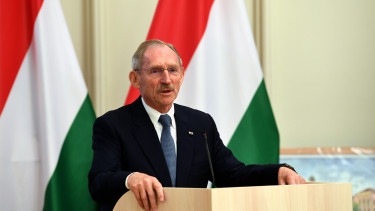Commission reveals how it plans to put an end to seasonal clock changes
Clock-changing must stop. Member States should themselves decide whether their citizens live in summer- or wintertime. It is a question of subsidiarity. I expect the Parliament and Council will share this view and find solutions that work for our internal market. We are out of time," said Commission President Jean-Claude Juncker in his State of the Union speech on Wednesday.
Commissioner for Transport, Violeta Bulc said: "We are proposing to put an end to seasonal clock changes as of next year. This very ambitious timetable will allow citizens to reap the benefits without delay. We are now inviting Member States and businesses to make the necessary preparations to ensure a coordinated approach across the EU."
The Commission's proposal:
- puts an end to seasonal clock changes for the entire European Union;
- sets out a clear and short timetable for the changes to take effect;
- encourages consultation at national and European levels, to ensure a coordinated approach among Member States.
“Today's proposal is another example of the Juncker Commission being big on the big things, leaving it to Member States to take decisions where they are best placed to do so," the EU executive said in a statement.
To allow for a smooth transition, under the Commission's proposal each Member State would notify by April 2019 whether it intends to apply permanent summer- or wintertime. The last mandatory change to summertime would take place on Sunday 31 March 2019. After this, the Member States wishing to permanently switch back to wintertime would still be able to make one last seasonal clock change on Sunday 27 October 2019. Following that date, seasonal clock changes would no longer be possible.
This timeline is conditional on the European Parliament and the Council adopting the Commission's proposal by March 2019 at the latest.
Why is the Commission proposing this change?
European countries introduced summertime arrangements in the last century to save energy, particularly in times of war or during the oil crisis of the 1970s. Starting in 1980, the European Union gradually adopted legislation putting an end to the diverging schedules of the national clock changes.In 2018 however, the purpose of clock changes has become much less relevant, with studies suggesting that energy savings are now marginal and citizens increasingly complaining about negative health impacts.
Clock changes have indeed been increasingly questioned by citizens, by the European Parliament and by a growing number of Member States. Building upon the request of the European Parliament, and as part of an assessment of the current arrangements, the Commission held a public consultation in summer 2018 which received 4.6 million responses, the highest number ever received in any public consultation organised by the European Commission. 84% of respondents were in favour of ending seasonal clock changes.
In light of these elements, the European Commission has concluded that there is no point for Brussels to keep regulating seasonal time changes and that Member States should be free to decide whether they want to be in summertime or wintertime and handle the matter at national level, in accordance with the principle of subsidiarity.







